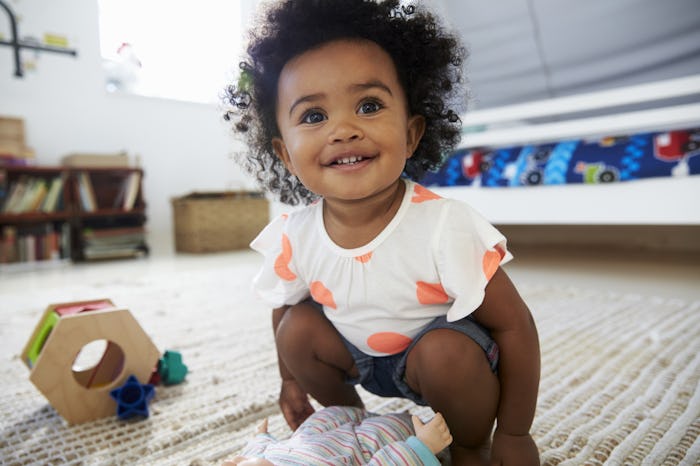Life
5 Personality Traits That Don't Change After The Age Of 3
The argument of nature-versus-nurture will likely rage on forever: Are we born hardwired to have a certain personality, or is our character molded by our experience? I'm not a psychologist, but I am a mother of three... and as such, I firmly believe that nature plays a huge role. It might sound crazy, but I swear each one of my kids' distinctive personalities was present from birth. So is your toddler's current vibe an accurate predictor of what he'll be like as a grown-up? There are some personality traits your 3-year-old will probably have forever.
You've likely heard that experts believe a child's personality is fully formed fairly early on in life. While this isn't a hard and fast rule — people's preferences and opinions will absolutely evolve over time — research has shown that there are indeed "significant links between our behavioral tendencies when we’re just a few months old and our later personality," as the BBC reported. Granted, nothing is guaranteed. Still, the "roots" of who we are go all the way back to infancy — and most of our strongest traits are firmly in place by around first grade, according to one study published in the journal Social Psychological and Personality Science.
"We remain recognizably the same person," study author Christopher Nave, Ph.D., told Live Science. "This speaks to the importance of understanding personality because it does follow us wherever we go across time and contexts."
Another study published in the Journal of Personality found that a 3-year-old's traits could predict his or her personality at the age of 26, as the Education Consumers Foundation reported, with certain traits known for being particularly stubborn.
But just in case you're starting to worry that your 3-year-old will still be throwing tantrums about having to wear pants when he's in college, it's worth noting that no child's personality is 100 percent set in stone.
"Some aspects of a child's temperament are essentially hardwired," Jonathan Pochyly, Ph.D., pediatric psychologist at Children's Memorial Hospital in Chicago, told Parents. "Many are predisposed to, say, being shy. But that doesn't mean you can't help guide and influence your child's behavior."
Psychologists once considered there to be nine different facets of infant temperament, but those have since been "distilled into just three broad dimensions," according to the BBC: "effortful control," "negative affectivity," and "extraversion." Those dimensions were then "clustered" into five types of children, as the ECF explained.
Interestingly, the 3-year-olds who could be described by one of the following types hung on to the associated traits well into adulthood. So if any of these categories applies to your little one... well, you might want to get used to certain behaviors.
1Confident
The Journal of Personality study found that confident kids grew up to be uninhibited adults. This makes sense, when you think about it; a lifetime of confidence would likely lead to feelings of inhibition. Perhaps all that feeling free explains why confident toddlers also scored low in the area of "self-control" as grown-ups.
2Well-Adjusted
Kids considered to be "well-adjusted" types kept that trend going through adulthood, scoring higher in the areas of agreeableness, extraversion, conscientiousness, and openness to new experiences.
3Impulsive
A trait in the "undercontrolled" category (along with restless and easily distracted), children who were impulsive at age 3 "grew up to score the highest on the trait of 'negative emotionality,' according to study results, and were described as tense, anxious, and disagreeable.
4Inhibited
In contrast to the confident kids who grew up to be uninhibited types with self-control issues, "inhibited children, on the other hand, showed the highest levels of constraint as adults and scored low on having a positive emotional attitude."
5Reserved
Kids who were "reserved" (showing more self-control and harm avoidance tendencies at 3) grew up to be more agreeable and conscientious than their peers, without the propensity for being open to new situations that confident kids (turned adults) had.
If only we could just mix all the best of these types together...
